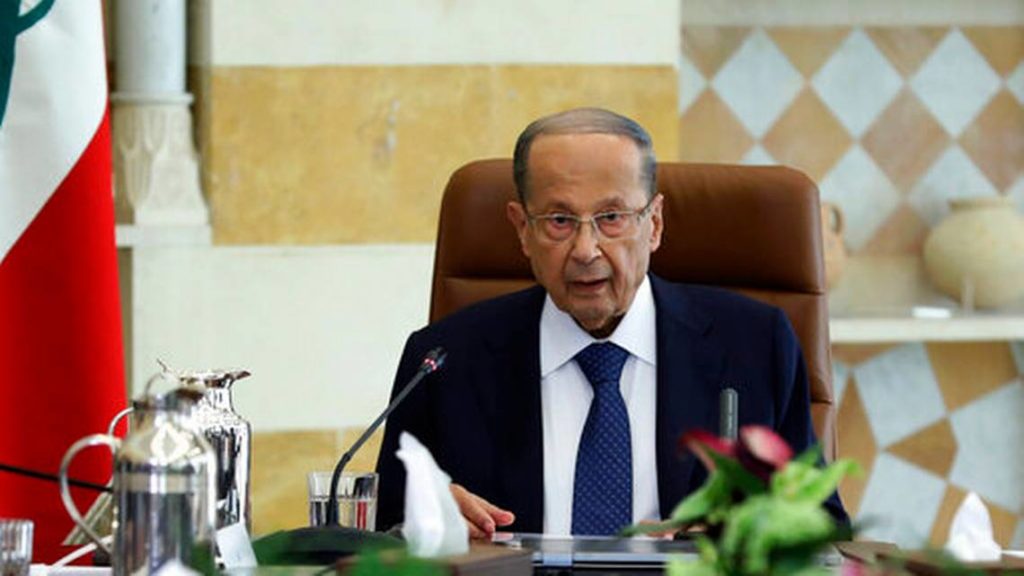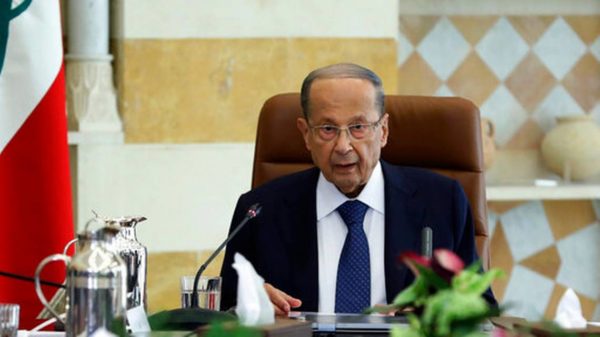Lebanese President Michel Aoun has blamed “contradictions that control politics” for his failure to call for binding parliamentary consultations to name a new prime minister.

Lebanon is mired in a deep political crisis amid nationwide protests that prompted Prime Minister Saad Hariri to resign on Oct. 29.
Aoun has yet to call for the consultations with the parliamentary blocs to name a new premier.
“The government should have been formed by now … but the contradictions that control Lebanese politics have compelled caution to avoid a more dangerous situation,” the president said in a speech marking the country’s Independence Day.
The next Lebanese government must be “efficient, productive and methodical,” he said.
“It’s time for action … because we are in a race against time as we face tremendous and dangerous challenges,” he added.
Aoun called on troops to protect the people’s freedom of expression and at the same time ensure freedom of transportation.
Activists have been closing roads around the country since the anti-government protests erupted on Oct. 17. But the Lebanese army has continued to reopen them.
Aoun praised the protest movement and the media for shedding light on corruption as “healthy and useful.”
But he warned against false accusations, instead calling on protesters to allow the judiciary to “do its job.”
He reiterated his call on protesters to send representatives to the presidential palace to hear their demands.
Aoun tweeted earlier Thursday that President Donald Trump said in a cable that the United States is ready to work with a new Lebanese government that responds to the needs of its people.
US Secretary of State Mike Pompeo has urged Lebanon’s leaders to form a new government capable of enacting reforms and fighting corruption after Hariri’s resignation.
PROTESTERS REJECT AOUN’S SPEECH
Protesters blocked several key roads across Lebanon on Thursday evening shortly after Aoun’s speech
The protesters first blocked the vital Ring highway in central Beirut. Road-blocking action later spread to the highway that links Beirut to the South with protesters blocking it in the Naameh area.
Roads were also blocked in Tripoli’s al-Qobbeh, central Bekaa and al-Beddawi.
The army meanwhile prevented protesters from blocking the road near the presidential palace in Baabda.
Protesters have repeatedly rejected calls for talks with the president, noting that their demands are well-known.
Lebanon’s unprecedented protest movement, which broke out on October 17, has been calling for a complete overhaul of a political elite accused of inefficiency and corruption.
After the government stepped down on October 29, protesters demanded a fresh cabinet composed of experts not affiliated with any of the traditional political parties.
But Aoun in a recent interview argued that a government made up solely of independent technocrats would not represent the people or be able to set policies.
ASHARQ AL AWSAT/YL


Leave a Reply
You must be logged in to post a comment.